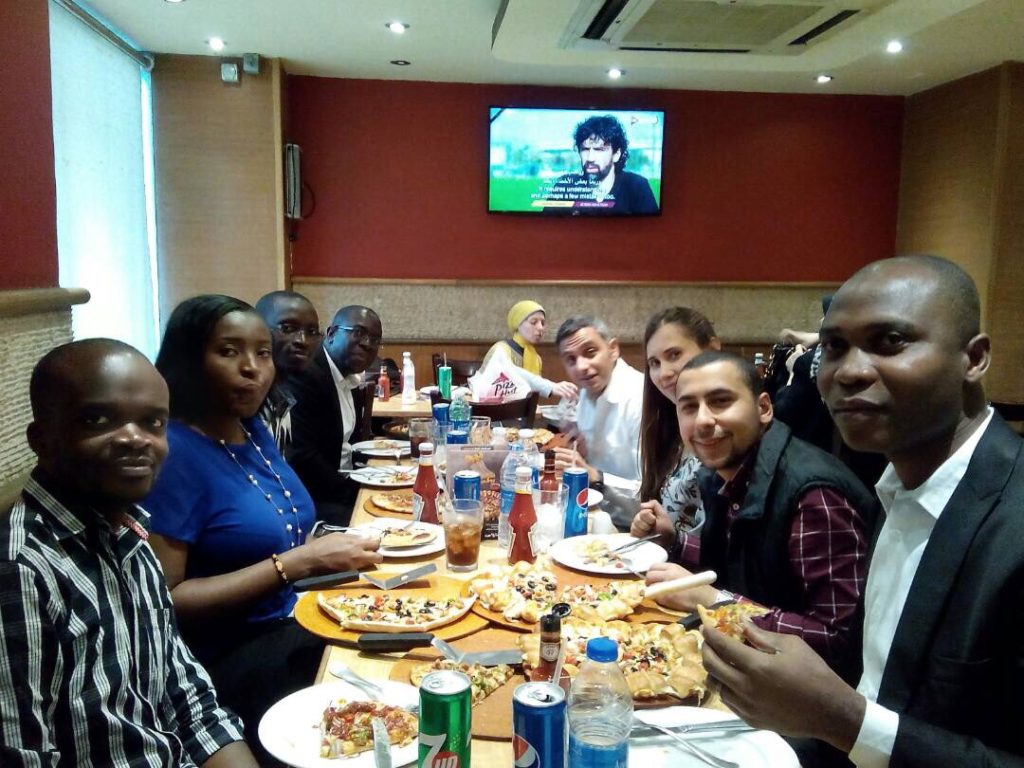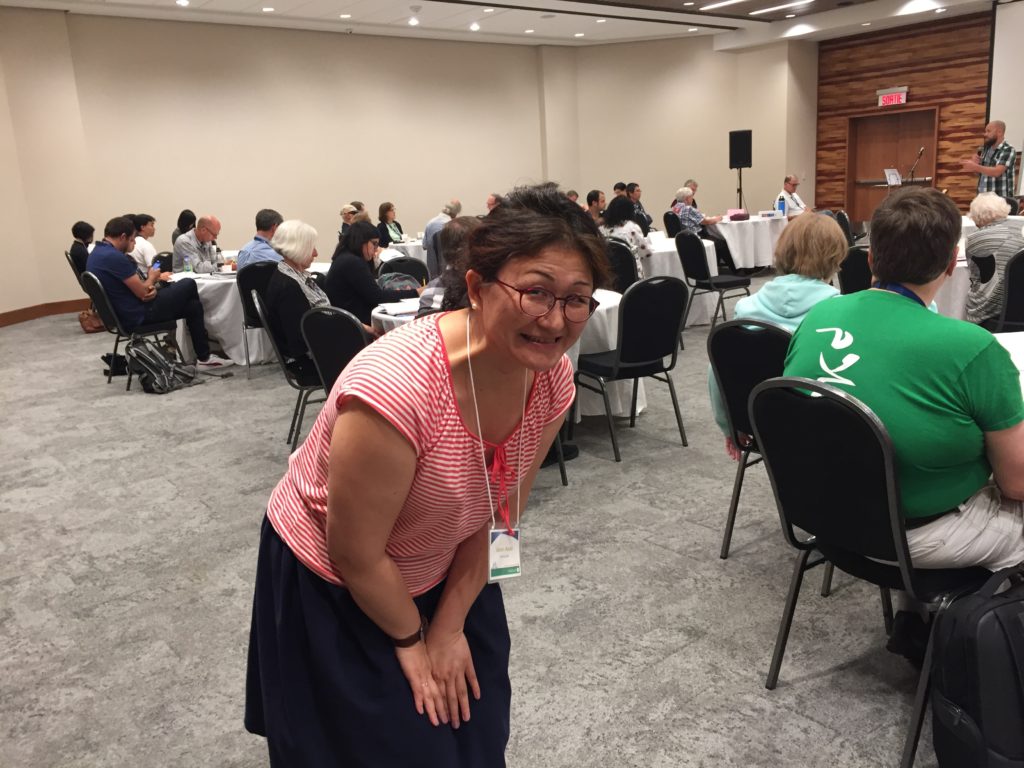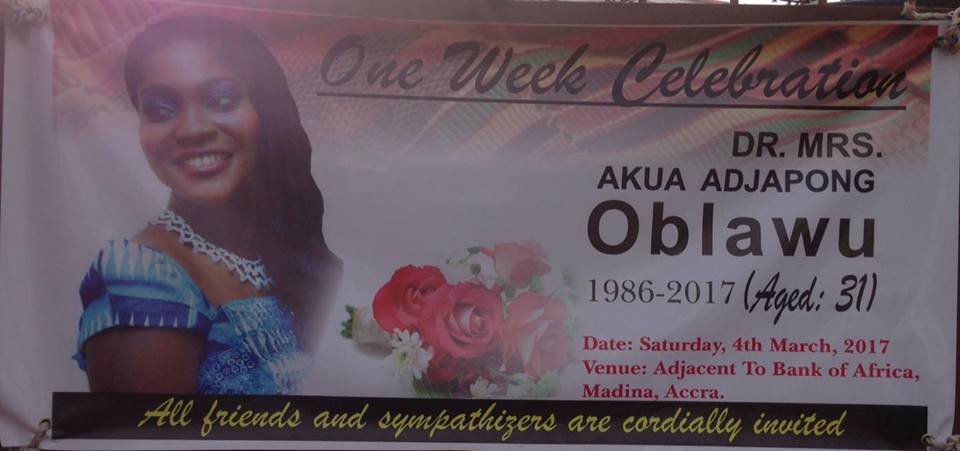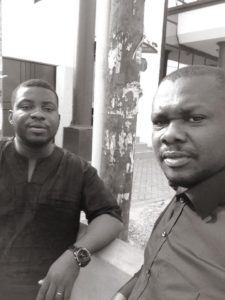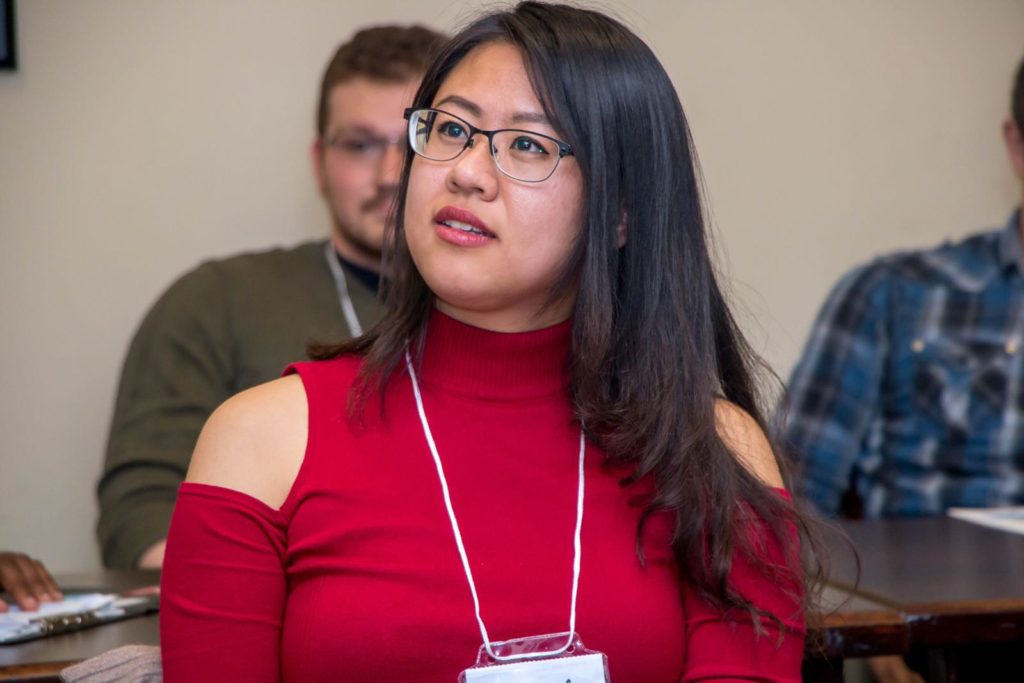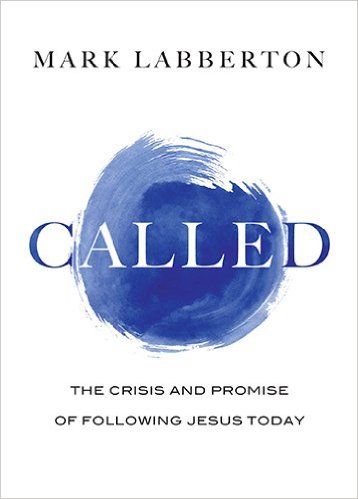A Daniel Dare for the New Year
With another new year comes another fresh challenge of fasting and prayer for 21 days—just like Daniel did.
HARD TO BEAT
Make no mistake. Every excuse you may have not to fast and pray, Daniel had same and more. He was super smart, highly intellectual and well-trained—from Alchemy to Zoology (Daniel 1). He aced the national test to serve the king.
He was super gifted with insight to interpret dreams, mysteries and hard puzzles that baffled the most sophisticated magicians, enchanters, astrologers and diviners of his time—in fact, he was once appointed chief of them all in King Nebuchadnezzar’s era (Daniel 5).
Daniel was super busy—he was one of three senior ministers overseeing 120 regional ministers of the Babylonian kingdom—he wasn’t slack. Indeed, Daniel so distinguished himself among the ministers and senior ministers by his exceptional qualities that the king planned to set him over the entire kingdom as prime minister (Daniel 6).
He was super principled and ethical—his diet, motives, honesty, disciplines, integrity, convictions… He was a man of noble character. He served several successive kings—he outlasted them—even as an immigrant in high political office.
Super young, super good-looking, super liked and all the above, he still found the need to fast for 21 days, seeking understanding of an issue that he wanted to unravel. At that time I, Daniel, mourned for three weeks. I ate no choice food; no meat or wine touched my lips; and I used no lotions at all until the three weeks were over. (Daniel 10:2-3)
If you are satisfied with being super by earthly standards, then by all means forget about the pain of fasting and the work of prayer. But if you want to see the supernatural intervening in your earthly matters, then welcome to the school of fasting and prayer.
DO THE MATH
Every new year is a mystery, like Daniel’s, waiting to be unravelled. To take 21 days seeking audience with the Author, Executor and Perfector of all the 365 days laden with prospects and dangers is only a 6% investment of your year but worth 100% of the effort.
Since 2007 a number of us have done this math and figured an exciting time of seeking the Lord in 21 Fasting Days of Prayer, Purpose and Planning at the start of each year is so worth it. See my blog last year for some of the most important reasons why I personally do this year after year for over 10 years now!
Please plan to join us as we seek the Lord in fasting and prayer from January 2nd to 22nd. We will plan to meet together daily for corporate prayer times in person or via video call (Zoom) from 5 pm to 6 pm local time (wherever you are in the world) and 5pm to 6pm ET in North America in particular. You will find the meeting link and schedule of daily prayer topics below.
CHOOSE YOUR FAST
In fasting, we commit to denying ourselves of food, drink or other comforts to more fully focus on prayer and fellowship with God. There are many types of fasts. There are complete fasts where you deny yourself all food or partial fasts where you forego certain types of food. Food is anything with calories 🙂 so does not include water (which has zero calories). It is actually a healthy practice to keep hydrated since the body is 60% water. A dry fast (no water) isn’t recommended beyond three days. Usually, when people set out to fast for an extended time—like the 21 days in the Daniel Fast—they will choose to do a partial fast.
The Daniel diet during this fast (like he did) is mainly vegetables and denying yourself meat, drinks and other choice foods. Basically, nothing fancy. Some still have three meals a day but nothing fancy (as described above) while others go the whole day denying themselves breakfast and lunch and eating only in the evenings.
Here are three suggestions of different partial fasts you could choose this January:
1) Full day fast Type 1: Fast from breakfast and lunch and eat a normal supper in the evening for the 21 days.
2) Full day fast Type 2: Fast from breakfast and lunch and eat a Daniel fast supper in the evening for the 21 days.
3) Fast Type 3: Eat three Daniel Fast meals each day for 21 days.
Please prayerfully consider joining us for this exciting 21 fasting days of Prayer, Purpose and Planning for 2018!
LAND THE DEAL
“Do not be afraid…Since the first day that you set your mind to gain understanding and to humble yourself before your God, your words were heard, and I have come in response to them. But the prince of the Persian kingdom resisted me twenty-one days…Now I have come to explain to you what will happen to your people in the future, for the vision concerns a time yet to come.” (Daniel 10:12-14)
It is the same dude, Daniel, who was unequivocal in stating, “…the people who do know their God shall be strong, and do exploits” (Daniel 11:32b). Now you know. HAPPY NEW YEAR!
TECHNICAL INFO
Schedule: January 2-22 daily topics here
Zoom Link: Join from PC, Mac, Linux, iOS or Android
Or Telephone: US: +1 646 876 9923 or +1 669 900 6833 (Meeting ID: 248 246 747)
International numbers available: https://zoom.us/zoomconference?m=BWpwOmbBqIO9McEisO8aYDJSSz5Wzav_
CONFESSIONS OF THE CALLED (#5): Convocation at the Table of Vocation
To be a stable entity one needs to get rid of a one-track mind that calling is just one thing and embrace at least four kinds of vocations, just like the legs of a four-legged table.
It was not until my university days that I clearly heard and understood that I had a unique and specific God-given calling in this life. The excitement of that threw me into an extreme mode where I sought that one and only specific vocation my Creator had for my life. If you’ve been following this Confessions of the Called series, you will know that a lot of my one-track perspective has changed. I now see at least four kinds of callings each of us have, and like the legs of a four-legged table, you just might topple without any of the legs:
1. Human calling.
Our first call is to be human beings (Benner 2015, 87). Personally, I find that I have been so much in a hurry to live out the next call below, the Christian call, that many times I have neither accepted my own humanity let alone that of another. I’m often in a hurry to deal with myself and people as Christian/non-Christian than first of all, as simply human. This is where you can love someone, even an enemy, simply because they too are human—made in God’s image.
2. Primary/General calling.
You may call this the Christian calling. This is basically the primary vocation of having been called by God himself in love to love God and love our neighbour as Christ-followers. The first few blogs in this ‘Confessions of the Called’ series have all been about how foundational and essential this is, before we attempt our secondary call.
3. Secondary/Specific calling.
Based on how God has uniquely wired us with gifts, passions, capacities, experiences, circumstances etc. we can discern through observation, prayer and counsel what specific vocation we may have, since no one else on the planet has our unique fingerprint.
Let me say here, another confession, that unlike the one-track-purpose-for-life that I used to think everyone had, there may be some of us who are called to a patchwork of callings. Perhaps no one captures it better than this English professor at Calvin College, Debra Rienstra (2005, 221-22):
“Some people’s passions are obvious, and God leads them through those passions into a single path of service. Mother Teresa, for example, or the lifelong kindergarten teacher, or the musician who offers his skillful playing every day for God’s glory and other people’s joy. Others, like me, have less obvious passions: what gives the energy develops over time or remains partially hidden or blooms suddenly in response to new situations. As a result such people offer an assortment of odds and ends as service: a regular job done with integrity, some volunteer work, a career decision that seeks service over money and prestige, kindness to neighbors, maybe a late-life passion for going on mission trips or teaching teenagers appliance repair. Their lives may not have the clean simplicity of vocation, but at the center of everything they do is a deep love for God—and that is everyone’s true vocation.
“I’ve learned that God treasures the lives made of a single piece of cloth, cut in the shape of service. But God also values the lives that look more like a bag of fabric scraps, some big pieces, some tiny pieces, different colors and weaves. At each stage in my life, with each piece of it, I try to ask God, “How can I offer this to you?” I have to trust that if I offer all the odds and ends of my life, God will stitch together the pieces in some lovely pattern and receive it as my gift.”
4. Immediate calling
This last one I gleaned from Gordon T. Smith’s Courage and Calling: Embracing Your God-given Potential. It brought such a sense of peace to me as I tend to be very futuristic and ‘big dreamy’ in my approach to life thus find little, urgent things like changing a diaper or taking my wife grocery shopping quite interrupting and irritating. Immediate calling means God invites us to be responsible with the present demands and tasks of our lives (Smith 1999, 10).
“And we know that God causes everything to work together for the good of those who love God and are called according to his purpose for them”—human, primary, specific, immediate callings. So come to the table just as you are, right where you are, right now. Relax. God’s got this.
Works Cited
Benner, David G. 2015. The Gift of Being Yourself: The Sacred Call to Self-Discovery. Downer’s Grove, IL: InterVarsity Press.
Rienstra, Debra. 2005. So Much More: An Invitation to Christian Spirituality. San Francisco, CA: Jossey-Bass.
Smith, Gordon T. 1999. Courage and Calling: Embracing Your God-Given Potential. Downer’s Grove, IL: InterVarsity Press.
WHEN LIFE DOESN’T MAKE SENSE!
In a world replete with success philosophy and prosperity preachers, how does one make sense of life when tragedy hits and one has no mental framework or faith construct to deal?
Man! February 2017 was one nasty month—humanly speaking. Tragedy upon tragedy. Within a week a friend and co-worker gets a stroke in Canada, a mentee loses her grandfather in France, another (a former international student in Belgium) loses her dad in Ghana… and then, as if these weren’t enough, the month wouldn’t end without the loss of a friend, a younger medical colleague in Ghana!
In fact, today is the ‘one-week celebration’ of the latter (picture above). Man! Akua was barely 31! I remember her beautiful countenance, not only from her internship days at the 37 Military Hospital when I was a medical officer there, but even only last November (2016) while I was in Ghana I had the joy of seeing her in her home. What had happened was that my bosom friend and brother Ben had urged me to come along with him to visit a school mate of his (and fellow church member) who had recently suffered a stroke. Prior to that I had no clue it was Akua’s home we were visiting—and that she was the young wife of Kofi. (As it turned out later, Kofi is actually the classmate of my wife, Anyele, from primary school).
My heart sank when I saw this hitherto strong young man, Kofi, wheelchair-bound and struggling to utter a few words from a seriously contorted face. This young man who was working in the insurance world had barely been married a few months when he suddenly had this stroke. Not even surgical interventions in the United Kingdom had salvaged the sad situation. Yet it was gratifying to observe his faith and how strongly supportive his young bride had been from the beginning up until the day I visited them, nursing him with love. The smart, pretty doctor now had a husband for a live-in patient.. O boy did I pray my heart and lungs out!
So imagine my shock last week. I had missed a phone call in the midst of busy travel. When I finally got to call back the conversation went something like this.
“Yaw, do you remember Kofi whom you prayed for?”
“Aha, of course.” (They say fear and faith don’t mix–well, at that moment I had both somehow.)
“Kofi’s wife just died!”
“Huh? Ben, what are you saying?”
“Yes oo, Yaw. Kofi’s wife, Akua, just died!”
“What?!!What’s going on?!” …
BRINGING IT HOME
Silence. Sadness. … Sometimes, life just doesn’t make sense and it would be interesting to hear what strictly-prosperity preachers have to say to these things. As for atheists and agnostics, I don’t know how they make it through life but for me, without God there is neither hope nor any sense to life. Yet then again, like David Bosch puts it in A Spirituality of the Road, “A god who provides all the answers becomes an explicable and comprehensible god, but also ceases to be God.” Bosch continues to share about an Albert Schweitzer (French-German physician and theologian) experience:
“Albert Schweitzer, in recollecting the ten years he taught catechism classes to boys in Strassbourg before the First World War, noted that after the war some of those young men thanked him that he had shown them so clearly that the Christian faith does not explain everything. This awareness enabled them to survive spiritually in the trenches, whereas many others, who were told that Christianity provided all the answers, lost their faith when faced with that which was inexplicable.”
But this was my shocker: the story of a piece of paper found among the ruins of the Jewish ghetto in Warsaw after the Second World War. It is said to contain the last words of a certain Jew, Jessel Rakover, as he was preparing himself for an impending violent riot aimed at the persecution and massacre of his ethnic/religious group. The portion of Bosch quotes in A Spirituality of the Road gives me the chills. Here goes:
“I believe in you, God of Israel, even if you have tried your best to dissuade me to believe in you. I believe in your laws, even if I cannot approve of the way you manage things. … I bow my head before your majesty, but I will not kiss the rod with which you hit me. … I would like to say to you that at this moment, more even than in any previous period of our eternal struggle for survival, we, the tortured, the humiliated, buried alive, burnt alive, insulted, mocked, we, murdered by million, that we have the right to know: until when are you going to allow it to continue? …I say this to you because I believe in you, more than ever before, because I know now, with absolute certainty, that you are my God, because you cannot be the God of those whose deeds are the most horrendous expression of godlessness; … I die in peace, but not appeased; persecuted, but not enslaved; embittered, but not cynical; a believer, but not pleading; a man who loves God, but does not say amen to everything. I have followed God even when he had flung me down, tortured me, and made me an object of humiliation and derision. And these are my last words to you my angry God: all this will do you no good. You have done everything possible to destroy my faith, yet I am dying precisely as I have lived, saying: ‘Shma Yishrael, hear, O Israel, the Lord is our God, one Lord.’ Into your hands, O God, I commit my spirit.”
WHAT WILL YOU DO?
Are there any more persons on earth who have such stubborn faith? Any of the Augustine stock who would say, “For it is better for them to find you and leave the question unanswered than to find the answer without finding you”?
I just got off the phone this morning with a young man who lost two of his sisters in a tragic car accident a few years ago—and their father is a world-renowned preacher who as at this very morning was still doing his Lord’s bidding in London, UK. That day, apart from the two teenage girls, four other church members lost this lives. I knew and loved those dainty girls, especially the 19-year old whom I had grown fond of since her high school days! Tell me, how many preachers have a theological framework that can contain such inexplicable tragedy?
It is easy to talk about tragic Job and weeping Jeremiah or even Jesus whose life was cut short at 33. But as the Japanese theologian Koyama challenges, “Jeremiah and Jesus place their trust in the forsaking God! There is no longer the faith built upon God’s obvious answer. They believed in God even though God did not answer! … Here we do not see an answer-theology. We see instead a relationship-theology.”
I ask again. In a world replete with success philosophy and prosperity theology, how does one make sense of life when tragedy hits and one has no mental framework or faith construct to deal with it? Who is willing to “place their trust in the forsaking God” in a ‘God-forsaken’ place? This is hard; but such is life.
CONFESSIONS OF THE CALLED (#)2: Why Reversal is Suicidal
RESETTING THE STAGE
So Mark Labberton, author of Called, argues that Jesus’ two-word directive, “Follow me,” is the primary call that creates and defines our vocation (Labberton 2014, 9). While this seems basic it is quite revolutionary. This is not the approach or content I had anticipated from the title of the book. The heart of God’s call is this, Labberton seems to proclaim, that we receive and reciprocate the love of God for us—directly back to him first and indirectly to our neighbour. Indeed Jesus, quoting from to the Torah, made it clear that the greatest commandments are to love God and love people, period! This is our primary twin-call.
And I happily accept that. I also concur that whether or not we’ve discovered any specifics to our purpose in life we should live out this first thing. We even agree that this specific, unique God-given purpose should be “aspects of our call [that] assume first things but then move us in particular contexts of work or ministry, of friendship or marriage, of service or advocacy, of imagination or analysis. The next things may take the form of jobs (and often do), or they may be acts of volunteer service. This is where the convergence of gifts, talents, education, opportunity, passion and more draw us towards jobs or service that can seem deeply rewarding.”
When it comes to the specifics, however, I believe that Jeremiah was not an exception; that God saying of him that He knew him and fashioned him in the womb for a specific purpose applies to each of us too. Otherwise, for instance, why do each of us have unique fingerprints?
So yes, I grapple with my seminary president’s assertion that “Beyond these first things, God [only] sometimes has next things” because I still believe he always does for everyone. That notwithstanding, I immediately see the dangers he points out of not keeping first things first (pursuing our primary call of loving God and loving people) and rather seeking custom-made next things first. Reversal of first things and next things is not just counterproductive in the end; I dare say it is even suicidal. Here are three reasons why (which I’ve summarised and coined in my own typical alliteration fashion). We:
- miss the point
- miss the priority
- miss the person.
I will dwell only on the first two dangers here (in order to keep this blog short and sweet) and highlight the last one (potentially the worst; and the lengthiest) in the next installment, DV.
1. MISSING THE POINT
We are not here for us—we are here to please/glorify God and bless humankind. What is the point if we discover that we are uniquely shaped to, say make music, and yet end up using it in a way that offends our creator and/or exploits our fellow human beings? There are many celebrities who have obviously discovered their gifts and talents (specific God-given purpose, if you like) but who are still far away, so far away from their primary call to love God and people, or in the words of Jesus, “Follow me.” What if even our ‘calling’ or ‘career’ now rivals our primary love for God?
I think of many people who say they’ve discovered their calling, let’s say to be medical doctors, but whose attitudes stink—are they really living out their God-given purpose then? How about the one who is an obviously gifted public servant and yet is corrupt to the core? Does she not make a mockery of her primary purpose in the midst of executing her specific, secondary call? What’s the point?
On the other hand, “If we embrace and practice our primary calling to live as followers of Jesus,” Labberton posits, even “in the most practical and ordinary contexts of our lives, the meaning of our secondary call will more likely occupy its appropriate place and will bear the weight and priority that is formed by what matters most” (169).
Again, “If and when we come to a particular setting or work that especially suits the way we’ve been made or to work on the concerns or passions we want to give our strengths and energies to, we bring to those settings far more of what they need than just good talent or interest. We bring something of the kingdom” (170).
2. MISSING THE PRIORITY
First things trump everything. As Labberton puts it, “In Scripture, God seems far more passionate about first things—how we live and love and our neighbor—than about next things—what our set of daily tasks is. At the same time, it’s clear how we love him and our neighbour by how we demonstrate that in the context of our daily relationships and tasks. This is where the ordinary joy and rub of Christian discipleship are meant to be lived out. We live out the extraordinary call of following Jesus (first things) right in the midst of the ordinary actions of daily life (next things).”
In other words, in the grand scheme of things, someone who hasn’t discovered their specific, unique God-given purpose but is loving God and neighbor in whatever ‘mundane’ tasks in life is making the mark in God’s eyes while the one with the perfect skill set in the most fulfilling profession but missing first things may end up with the short end of the stick like the scenario Jesus describes at the final judgment when many will come and say, “Lord, Lord, did we not prophesy in your name and in your name drive out demons and in your name perform many miracles?” Remember the Lord’s response to such who missed first things even though they did next things? “Then I will tell them plainly,” he says, ‘I never knew you. Away from me, you evildoers, you law breakers, you workers of lawlessness!’
Does anyone need any further convincing that missing the point of purpose and missing God’s priority in the chase after next things are suicidal? The third danger, why reversal is suicidal, I find even more fundamental than these other two but tell me what you think so far.
TO BE CONTINUED…

